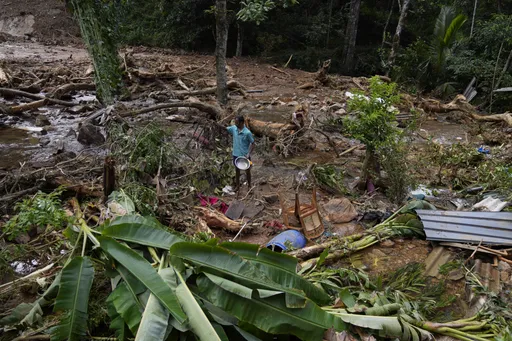Brazil has scuttled a decommissioned aircraft carrier despite environmental groups claiming the formerly French ship was packed with toxic materials.
The "planned and controlled sinking occurred late in the afternoon" on Friday, some 350 kilometres off the Brazilian coast in the Atlantic Ocean, in an area with an "approximate depth of 5,000 metres," Brazilian Navy said in a statement.
The six-decade-old warship, the Sao Paulo, was scuttled, after Brazil tried in vain to find a port willing to welcome it.
Ahead of its sinking, environmentalists said the aircraft carrier contains tonnes of asbestos, heavy metals and other toxic materials that could leach into the water and pollute the marine food chain.
"If they proceed with dumping the very toxic vessel into the wilderness of the Atlantic Ocean, they will violate the terms of three international environmental treaties," director of the Basel Action Network, Jim Puckett, said on Thursday.
French environmental group Robin des Bois called the ship a "30,000-tonne toxic package."
'High risk' to environment
Built in the late 1950s in France, whose navy sailed it for 37 years as the Foch, the aircraft carrier earned a place in 20th-century naval history.
It took part in France's first nuclear tests in the Pacific in the 1960s, and deployments in Africa, the Middle East and the former Yugoslavia from the 1970s to 1990s.
Brazil bought the 266-metre aircraft carrier for $12 million in 2000.
A fire broke out on board in 2005, accelerating the aging ship's decline.
Last year, Brazil authorised a Turkish firm to dismantle the Sao Paulo for scrap metal.
But in August, just as a tugboat was about to tow it into the Mediterranean Sea, Turkish environmental authorities blocked the plan.
They did not allow the vessel into the country's territorial waters citing a hazardous substance inventory report that was not provided to the Turkish authorities.
Brazil then brought the aircraft carrier back, but did not allow it into port, citing the "high risk" to the environment.
























